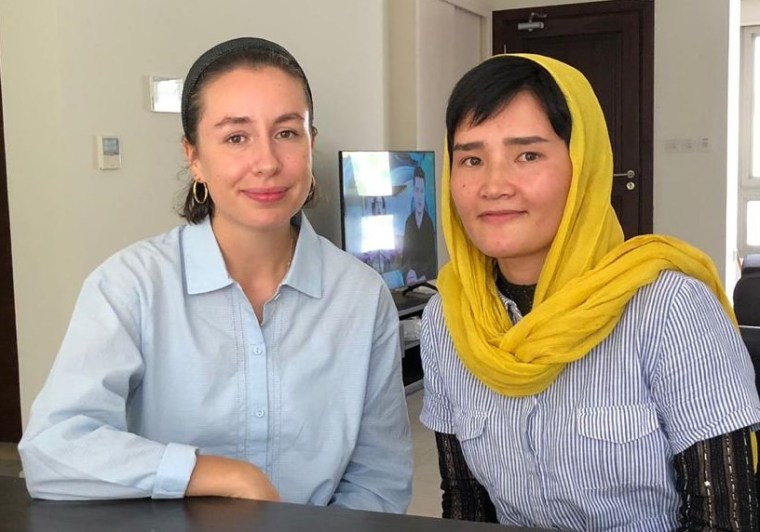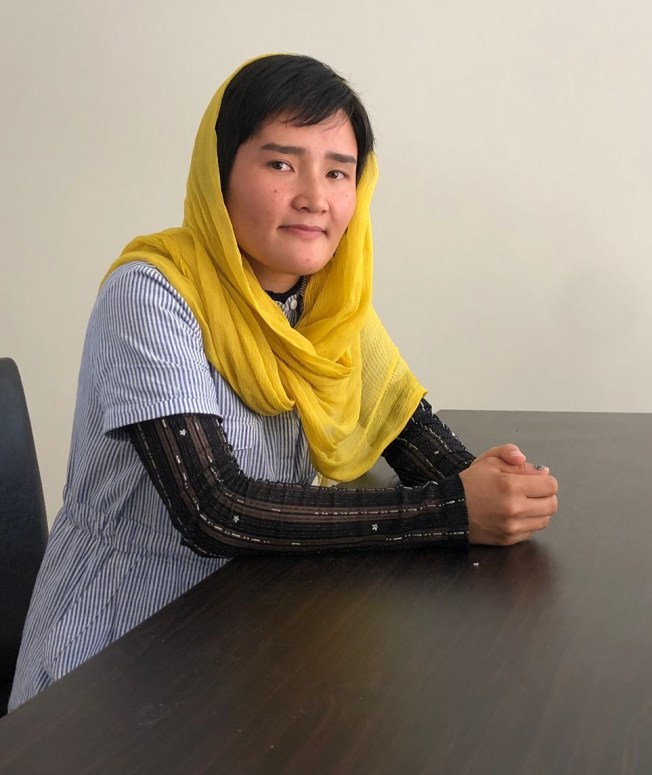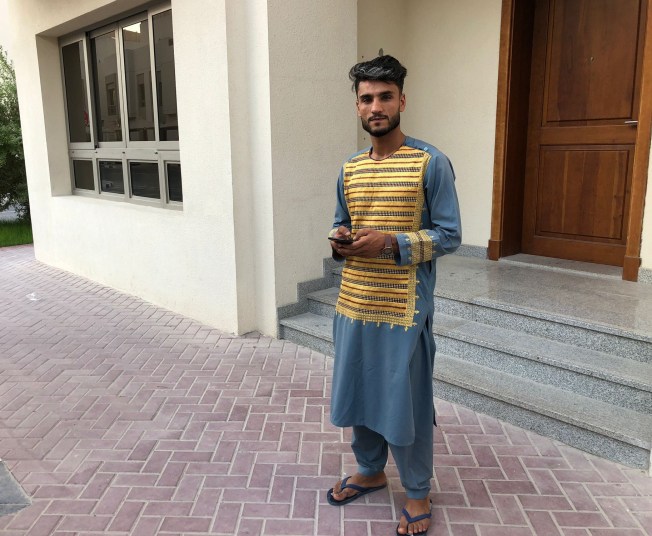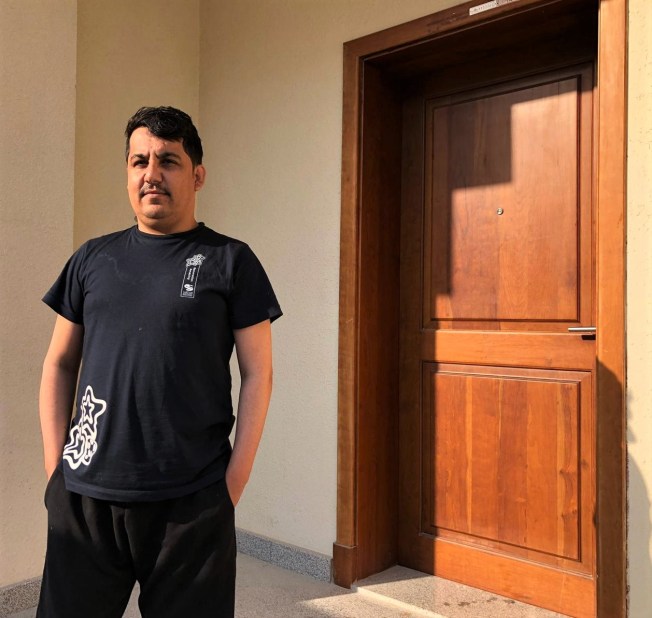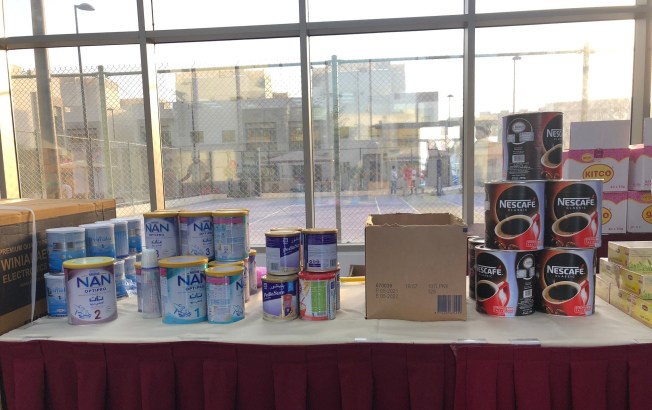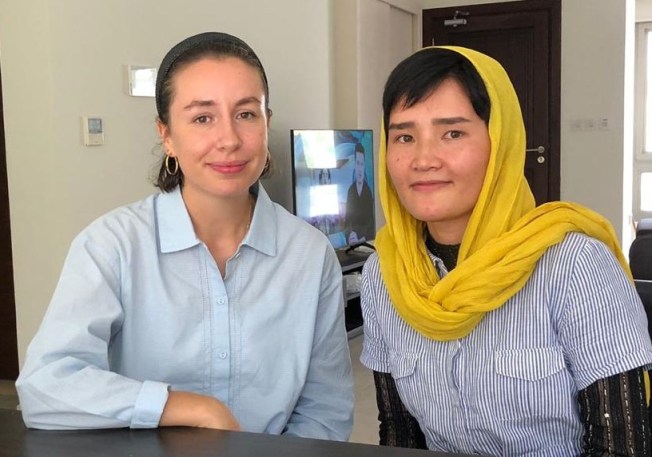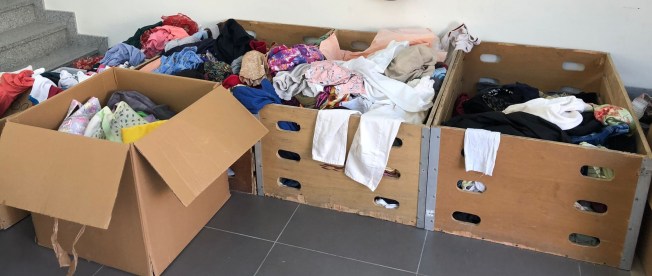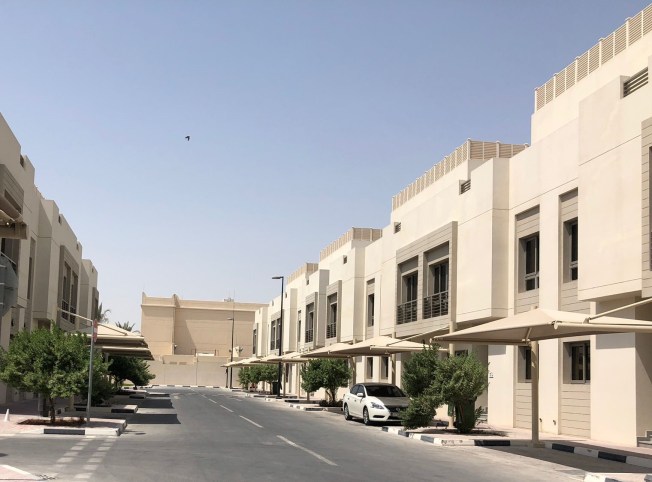In September 2021, CPJ’s Lucy Westcott traveled to Doha, Qatar, to meet with Afghan journalists CPJ helped to evacuate from Kabul. Preceded by Elisabeth Witchel, a CPJ consultant, Westcott’s task was to continue Witchel’s work and ensure that journalists either got safely to their resettlement country or were helped to find new homes elsewhere.
Some snapshots from the Doha trip, and a look into CPJ’s work assisting journalists during this crisis.
Thursday, September 9, 2021
My first task is to meet the journalists on the compound and get up to speed on their statuses. Who has a visa? Who has a pathway to another country? Who is flying, when is the next flight, and is it direct? This crisis has turned my job into something unique: I’m part journalist, part travel agent, and part case worker.
Today is my first visit to the Park View Villas, a 20-minute drive from Doha’s Hamad International Airport. The route is lined with strip malls containing burger restaurants, gyms, and perfume shops. The few people who walk outside stick to the shade. The villas, also referred to as the “compound,” were built for the next FIFA World Cup, which Qatar is hosting in 2022. Next November, the roomy apartments will be occupied by foreign delegations and football players. For now, they house Afghan refugees, including journalists CPJ helped to evacuate from Kabul. There is a clubhouse, a swimming pool, and three playgrounds, as well as a supermarket for the residents. All food is provided for the residents, and there’s access to medical care. Donations of coffee, books, and clothes are available in the club house.
The first person I meet is Abdul Khalid Andish, a radio journalist from Kabul who is here alone.
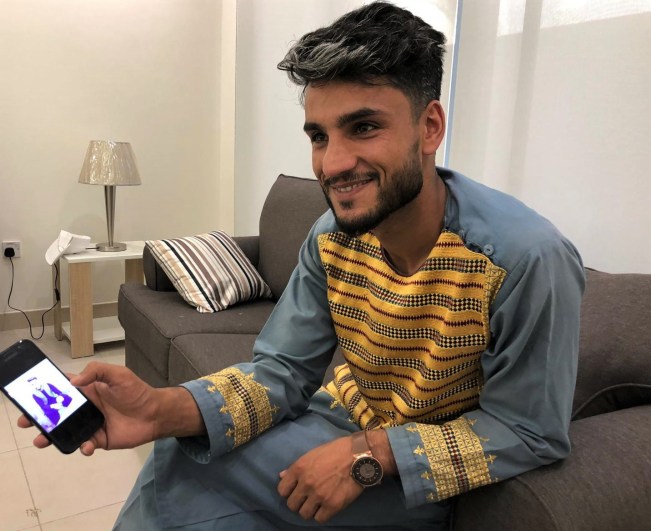
I recognize him from his passport photo, having spent hours sending his passport scan, along with those of dozens of at-risk Afghan journalists, to the U.S. State Department and other governments to highlight at-risk journalists who needed evacuating from the country. He keeps his precious documents in individual plastic envelopes in a black ring binder. These include certificates from Nai, an Afghan media development organization that was funded by, among others, the U.S. government. The certificates—each emblazoned with a large USAID logo, evidence of who funded this skill-building project—show Andish’s considerable journalistic skill. He is trained in investigative reporting, Adobe Premiere, and magazine design. He was evacuated, but his next destination is unclear, unlike that of his housemate, Ahmad Wali Sarhadi, a Special Immigrant Visa [SIV] applicant who has worked extensively with media in the U.S. and Germany. They have a strong bond and Sarhadi translates for Andish, whose English improves during my stay. Sarhadi jokes that he knows Andish’s story off-by-heart by now.
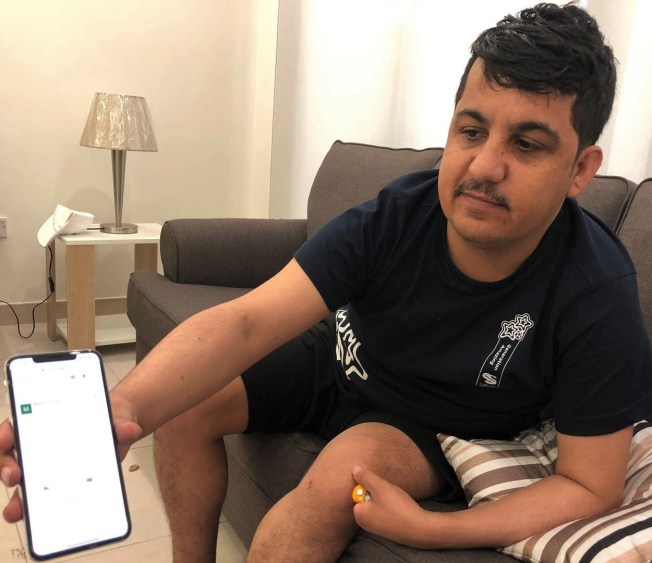
They offer me tea and coffee, bottled water, and bread rolls in plastic wrappers. Kindness. Luckily for me, there are quite a few Bounty bars. Andish and Sarhadi update me on their cases, and I keep track of who I need to follow up with.
Friday, September 10, 2021
Tomorrow is the first day of Zahra Adeli’s new life. Today my focus is getting her and her family ready for their flight to Dublin, Ireland. That means filling out their passenger locator forms, making sure the family knows when their car to the airport will arrive, and sending their negative COVID PCR results and documents to Irish authorities ahead of their arrival. A 20-year-old visual journalist, she fled Afghanistan with her family in late August 2021 on the CPJ evacuation flight, soon after the Taliban took control of Kabul. Like many Afghan women and journalists, Adeli gave up everything for a chance at a new and safe life.
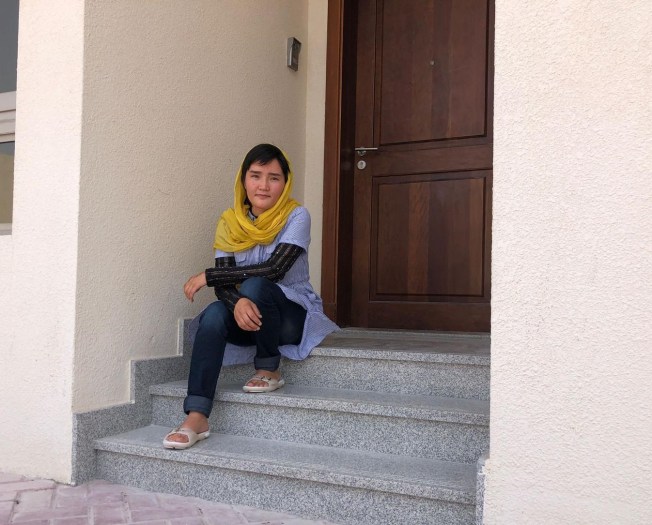
But for them to reach their new country, it’s up to me to correctly fill out the Irish locator forms, which will become a familiar friend and foe over the next few days. It’s simple, but I am aware of the stakes. One typo or missed digit from a passport number, and things could be hard for them when they reach the airport. I go through the passports and ID cards for her and her family, checking once, twice, ten times that the numbers I type out match what I am holding. As I type out Adeli’s date of birth for the form, I am struck by the fact that an Afghan journalist born in 2001 will be flying to her new life in Ireland on September 11, 2021. An entire life lived in the shadow of the war.
When the forms are done, I interview Zahra and learn more about her life and her journalism. She becomes animated recounting the work that she is proud of: “When I started [in journalism], my opinion was that everything and every social media shows a bad face of Afghanistan. They don’t show the positive things, our girls. I decided to show them. The Afghan girls can do everything.”
To sit with her in-person at this table, hours before she is due to board a plane, feels like a circle being completed, like she is being given an ending. Later on, I am crackling with nerves as I await the results of the family’s PCR tests. Luckily their results come through in time: All negative.
Like yesterday, I see journalists working on the compound. There’s a reporter doing a stand-up, speaking to a camera in front of the club house. The business card of a Japanese journalist sits on the coffee table of another Afghan journalist. The exiled reporters are now the story. It is still surreal to see in real life the names and faces from the passports I uploaded during the chaos of mid-August, as people scrambled to escape the Taliban takeover.
Saturday, September 11, 2021
I have been awake since 4 a.m. because I want to make sure the Adeli family gets to the airport and on their flight safely. I watch the sunrise over Doha and keep track of the remaining cases. Another Afghan journalist here is in the middle of a U.S. immigration process that started long before she fled Kabul, so I email the embassy for any updates. For the other journalists, which governments do I need to follow up with? When is the next direct flight to Dublin? I track the Adelis’ plane online as it flies over continental Europe to Dublin. While they are safe now, they, like so many, worry about the family members left behind.
With the Adeli family in the air, I head to the compound and the Sayar family, who are due to fly to Dublin next week. Wajiha Sayar worked for two decades as a journalist for the BBC, teaching children and adults through the medium of radio. She tells me about the shock of leaving home so suddenly, when she was told it was time to evacuate. “How in a few minutes can I collect my clothes, arrange everything and go there? With the clothes that we had and a few things, our documents, we left our home, we left everything we had.”
With seven plane tickets booked for her and her family, we sit on her sofa and go through the Irish government documents that will allow the family to enter the country without a visa. We check all the names and document numbers against their passports and ID cards to make sure they are all correct. Her family members have questions about U.S. visa applications: Can they continue them in Ireland? I write these questions down and endeavor to get them answers for my next visit to the compound.
I continue on my rounds, and interview Sarhadi and Andish in their apartment. I check on any updates for Sarhadi’s German visa and whether Andish has any ties to other countries, which will help us determine his next step. Both journalists were on the CPJ evacuation flight and recalled that journey in detail, including the stress of reaching Kabul Airport and the chaos and danger outside of it. Andish showed me videos of his TV appearances in Afghanistan, and played recordings of him reading poetry on the radio. He misses his family and asks when he will be able to see them again. A familiar feeling. First, I tell him, he needs to get to his resettlement country.
As we leave the compound, music drifts out of one of the villas. There’s a visual arts and music workshop underway, across from the playground. Driving back from the compound today, I noticed murals on the high walls either side of a small tunnel, showing trees and the birds that circle them. The Adeli family, I learn, has made it through Irish immigration, were picked up by representatives from the Irish Refugee Protection Programme (IRRP), and are on their way to their accommodations.
Monday, September 13, 2021
Today there is a huge and unexpected update. Sarhadi has heard, finally, that his German visa is in its final stages. This means that he might soon be able to leave the compound and begin his life in another country. While this is good news, it also means he’ll be leaving behind his housemate, Andish, as we keep working on a resettlement option for him.
Despite all logistics and documents being shared and uploaded digitally on WhatsApp, I print out the Sayar family’s plane tickets at the hotel and hand them over in a white envelope. Paper copies are good in case her phone is lost or runs out of battery. Now for a stressful calculation. I need to figure out when to do their passenger locator forms and organize their PCR tests, which both must be done within 72 hours of the flight. I have limited time on the compound, and I must do the passenger locator forms with them. I write down the time they’ll arrive in Ireland, subtract 72 hours, make sure the forms are done within this time frame, and hope the COVID test results come back in time. Resettling families during a pandemic complicates everything.
Like any family about to embark on a long-haul journey, there are questions about luggage allowance and the weather in Ireland. It will be very different from Doha, I say, but much, much greener.
Tuesday, September 14, 2021
My last day in Doha is, predictably, the busiest. I head to the compound, determined to conquer six more Irish passenger locator forms. I remain acutely aware that one mistake could jeopardize their trip and add to the immense stress the family is already experiencing. As I fill out each form, encountering a minor snag when I can’t attach a child to their parent’s form, Sayar brings out a bowl of oranges and apples and several cans of soda. She tells me more about the work she did for the BBC, and the catchy names of the programs she worked on. “Golden Dust” was a radio show for prospective business owners, while “Village Voice” was for women and farmers who needed help with their land.
As I am doing this, I’m informed that the German embassy needs to have Sarhadi’s actual passport to physically put the visa inside. Unable to go in person, the passport is taken in a car, incredibly precious cargo. I call to make sure the passport has arrived at its destination safely, and hold it upon its return to the compound, before it is returned to its owner.
After hugging Sayar goodbye and wishing them a safe journey, I have my last meeting with Sarhadi and Andish. One journalist has a clear pathway and one doesn’t, but they rely on each other now and it is hard to see them here on their sofa, in their last few days together. We talk again about Sarhadi’s options, the U.S., Germany, or even Australia or New Zealand, but it’s clear that he’ll be leaving the safety of the Doha compound for Berlin in a few days. (He has since arrived in Germany.) I have spent hours with them, drinking the coffee they made for me and learning about their lives. As I speak with them for the last time, it is a struggle to hold back the tears.
It was the honor of a lifetime to play the smallest part in the lives of these journalists, and I hope that we’ve set them on their way to a safe new life.
